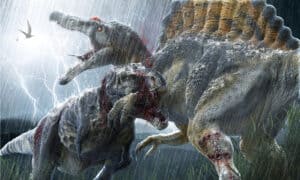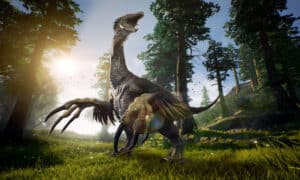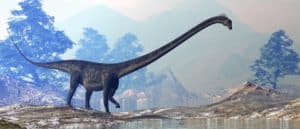Dinosaurs had been evolving and going extinct since the dawn of their existence, but something happened that made them all disappear. They roamed the earth for 165 million years, but their reign ended abruptly. So, when exactly did the dinosaurs go extinct?
What is a Dinosaur?
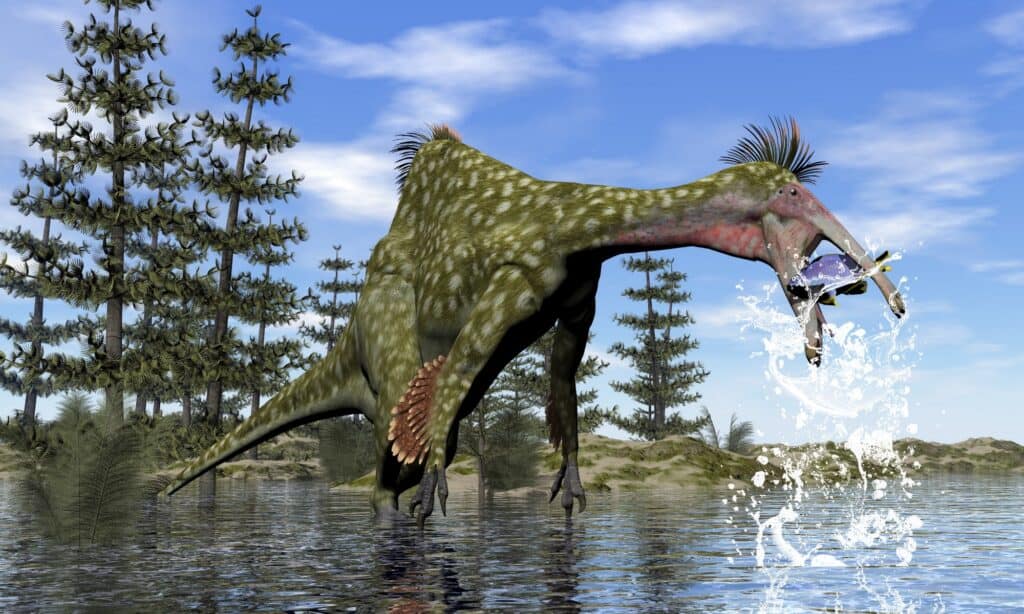
Dinosaurs were some kind of reptile, even though they were probably warm-blooded.
©iStock.com/Elenarts108
Dinosaurs are warm-blooded animals related to crocodiles and birds that existed on the planet millions of years ago. They are reptiles, as commonly believed, though this is hotly debated. Exactly how to define an animal as a dinosaur isn’t clear-cut, but it was the largest animal to ever exist.
Different kinds of dinosaurs lived in three different periods during the Mesozoic Era: the Triassic, Jurassic, and Cretaceous. These geologic periods coincide with the separation of the continents. This slow separation isolated dinosaurs from each other, causing different evolutionary and extinction periods.
Each period saw new dinosaurs and the extinction of the old. Not all dinosaurs lived together at the same time. The biggest dinosaurs were alive during the Jurassic.
When Did Dinosaurs Go Extinct?
Dinosaurs went extinct 66 million years ago. To be more precise, all non-avian dinosaurs went extinct while a few avian dinosaurs scratched out an existence. Most other species of plants and animals on the planet also went extinct.
This disaster marked the end of the Cretaceous and the beginning of the Paleogene. Theories have changed over the last 50 years, but the answer to how exactly the dinosaurs went extinct is still a mystery.
It’s believed that either a huge meteor hit the planet or major volcanic activity caused dramatic climate change. This climate change drove the extinction event in surviving populations in unique ways.
For example, one study showed that a lack of vitamin D3 due to climate change may have affected dinosaur eggs. The eggs died before they hatched, and dinosaurs couldn’t reproduce. This may have exacerbated a slow march to extinction that was already occurring.
Did All Dinosaurs Go Extinct?
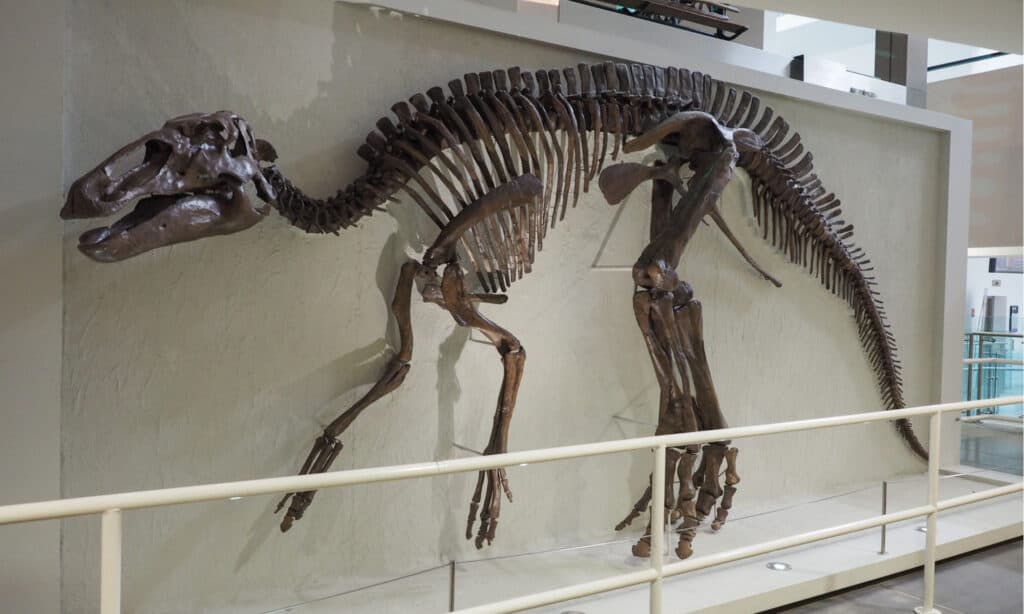
Non-avian dinosaurs went extinct 66 million years ago.
©Claudio Divizia/Shutterstock.com
No, not all dinosaurs went extinct. A few smaller carnivorous avian dinosaurs survived the mass extinction event 66 million years ago.
If dinosaurs hadn’t gone extinct, there wouldn’t have been a niche for birds and mammals to fill. Perhaps we wouldn’t be here at all if dinosaurs hadn’t been wiped off of the face of the planet.
On the same token, if the Permian extinction event, 251 million years ago, hadn’t occurred, no hole in the ecosystem would have existed for the evolution of dinosaurs.
Are Birds Dinosaurs?
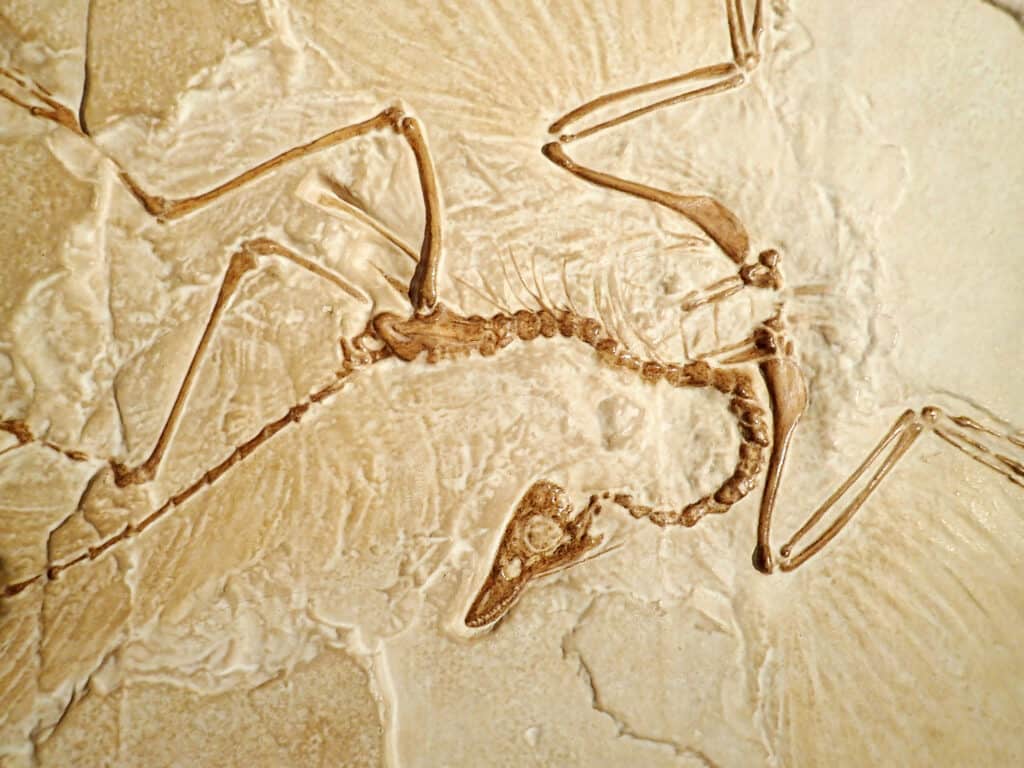
Archaeopteryx is a 150 million-year-old fossil that shows a dinosaur with feathers.
©Natalia van D/Shutterstock.com
Yes, birds are the descendants of dinosaurs. Birds with beaks survived the time when dinosaurs went extinct. Larger birds with teeth and claws also went extinct with the dinosaurs. The ancestors of modern birds did not die when all of the other dinosaurs went extinct.
Small theropods eventually evolved into what we see today. The T. Rex is also a therapod, but birds evolved from smaller species. Some think, though, that the T. Rex may have had feathers.
While today’s birds aren’t true dinosaurs, they are directly related to a certain line of carnivorous dinosaurs. Modern chickens are examples of a direct dinosaur descendant.
Birds did become distinct animals separate from dinosaurs during the middle of their reign in the Jurassic. This allowed them to evolve into something a bit different than the animals that didn’t survive the Cretaceous extinction event.
Birds most likely survived mass extinction because their diet is highly variable, they were able to fly, and they were tiny in comparison to dinosaurs.
Archaeopteryx is the oldest fossilized dinosaur with feathers. It existed about 150 million years ago at the height of the Jurassic during the dinosaurs’ heydey. It’s possible a lot of the other dinosaurs we’ve discovered also had feathers, but they weren’t preserved.
Did Humans Live With Dinosaurs?
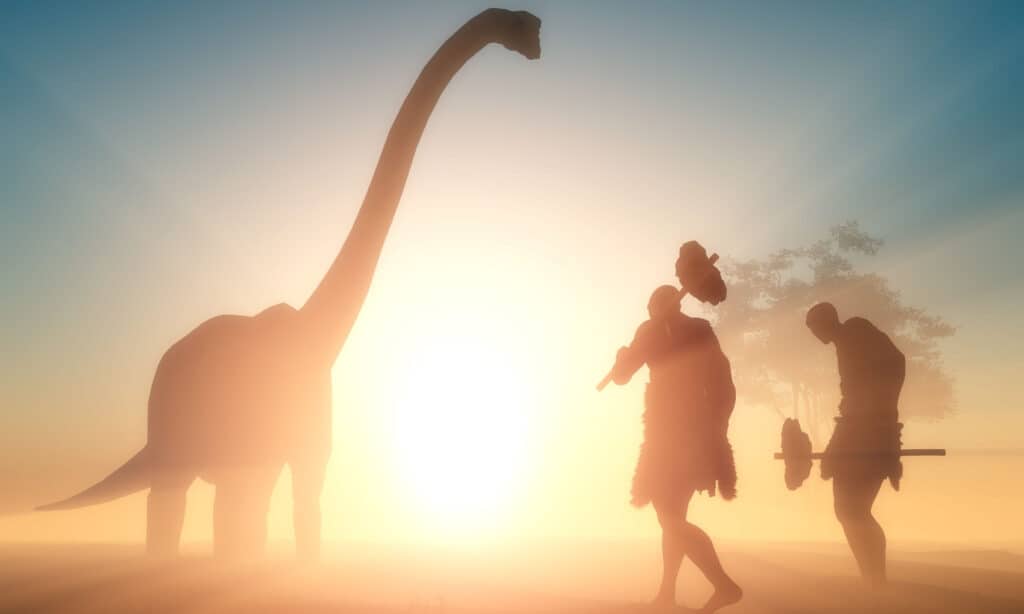
While popular culture often shows hominids living with dinosaurs, this never happened.
©iurii/Shutterstock.com
No, humans did not live with the dinosaurs. Dinosaurs went extinct 66 million years ago, and people have only been around for a little over 10,000 years.
We do, however, live near birds which are the direct evolutionary descendants of some dinosaurs. In a broader sense, we still technically live with distant dinosaurs.
The first and most primitive primate may have existed with the dinosaurs and survived the 5th mass extinction event that wiped the dinosaurs out. This primate is called Purgatorius.
Purgatorius survived due to its small size. Also, its ability to access the smaller resources left, like nuts and berries, that dinosaurs couldn’t use, allowed it to rise on the evolutionary ladder.
While nothing that resembles a human was alive during the time of the dinosaurs, it’s likely our most distant primate ancestors were.
Are Alligators and Crocodiles Dinosaurs?
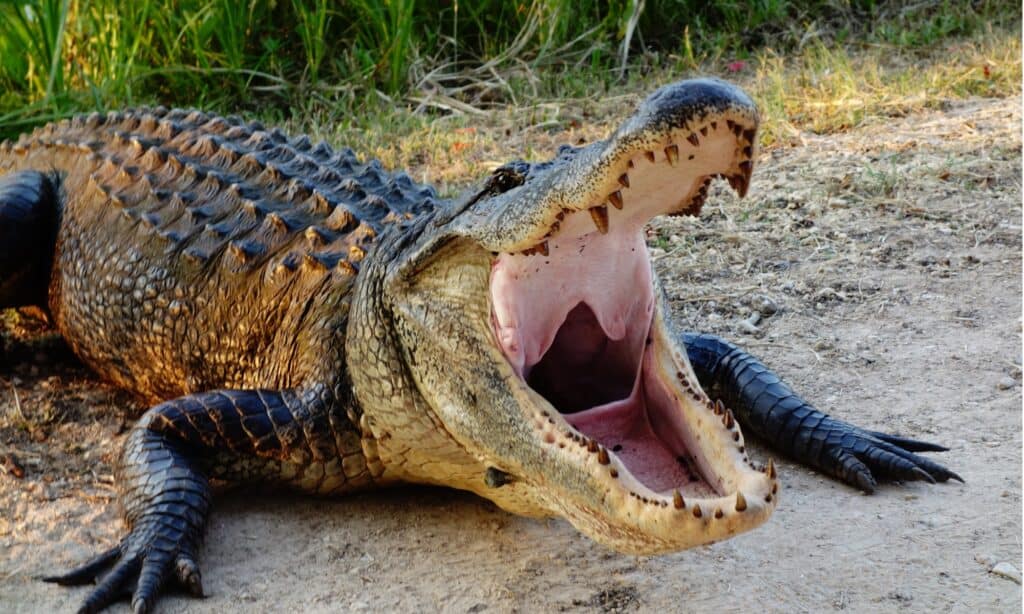
While modern alligators and crocodiles are not dinosaurs, they are related.
©iStock.com/Alex Pankratov
No, alligators and crocodiles are not dinosaurs. Crocodiles and alligators are archosaurs like the dinosaurs, but they are distinctly different. Modern birds are as related to crocodiles and alligators as the dinosaurs.
When the food chain was disrupted by the extinction event at the end of the Cretaceous, some cold-blooded animals were able to slow their metabolism and survive. Ancestral crocodiles were one of those animals.
Dinosaurs, as warm-blooded animals, constantly depended on the viability of the ecosystem in which they lived. This includes a stable flora and fauna population, which was devastated during the 5th mass extinction. As the entire ecosystem collapsed, so did dinosaurs too.
Crocodiles, on the other hand, were able to survive it.
Are There Any Dinosaurs Left?
No, there are no true dinosaurs left on the planet. Crocodiles, alligators, and birds come close, but they’ve evolved into animals that aren’t true dinosaurs.
If a huge cataclysm hadn’t befallen the dinosaurs, they might have existed through today. They would have been capable of living in some areas of our modern world, despite it being colder now than it was then.
However, if dinosaurs hadn’t gone extinct, would mammals have had the chance to develop enough to create primates and hominids? Most likely not, as entire ecosystems would have developed differently because of dinosaurs’ grazing or predatory behavior.
In that sense, we should be thankful that no true dinosaurs still exist.
Up Next:
- Massive Prehistoric Animals that Lived Before Dinosaurs
- Meet the Large Dinosaur Discovered by 7-Year-Old
The photo featured at the top of this post is © Dotted Yeti/Shutterstock.com
Thank you for reading! Have some feedback for us? Contact the AZ Animals editorial team.



